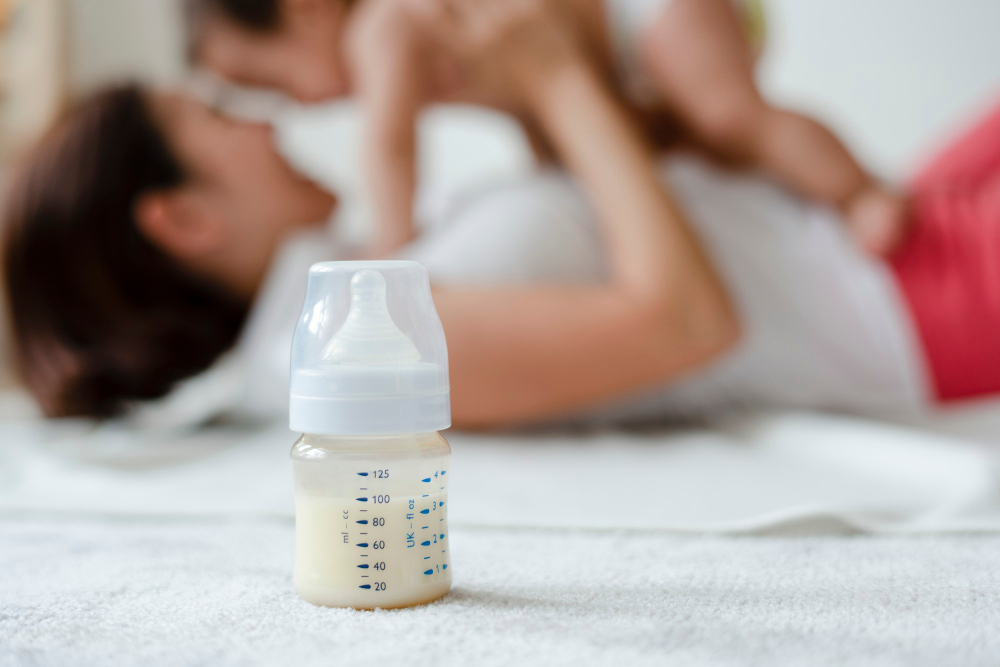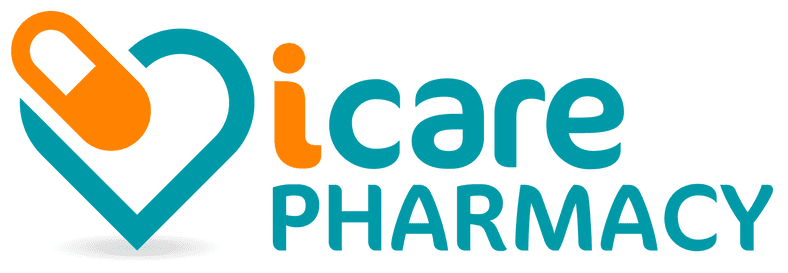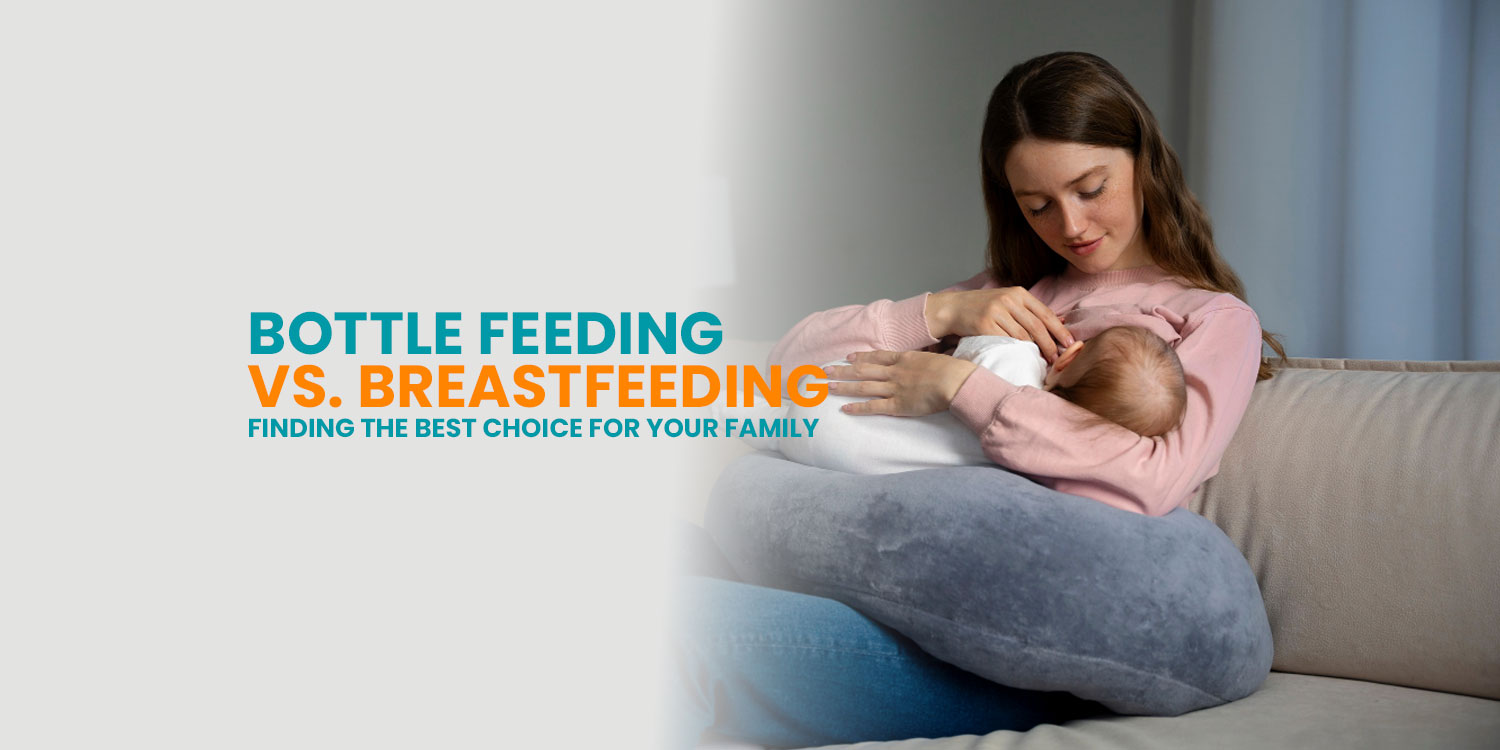Bottle Feeding vs. Breastfeeding: Finding the Best Choice for Your Family
When it comes to feeding your baby, few topics generate as much discussion—and sometimes pressure—as the choice between breastfeeding and bottle feeding. While breastfeeding is often promoted as the ideal choice, the reality is that every family’s journey is unique, and what works best for one may not be the best option for another. Ultimately, the most important factor is ensuring your baby is well-fed, loved, and thriving (American Academy of Pediatrics [AAP], 2022).
The Pressures and Realities of Breastfeeding
Breastfeeding is frequently described as a natural and beautiful experience, but that doesn’t mean it’s always easy. Many new parents feel immense pressure to breastfeed exclusively, whether from healthcare professionals, family members, or societal expectations. While breast milk provides essential nutrients and antibodies for a baby’s early development (World Health Organization [WHO], 2023), it’s important to acknowledge that breastfeeding can come with its own set of challenges.

Why Some Parents Struggle or Choose Not to Breastfeed
There are many reasons why parents may struggle with or choose not to breastfeed. Some of the most common challenges include:
Difficulty Latching: Some babies have trouble latching properly, leading to pain, frustration, and difficulty in feeding (Wambach & Spencer, 2021).

Low Milk Supply: Not all parents produce enough milk to meet their baby’s needs, even with dietary changes, pumping, or lactation support (Kent et al., 2020).

Stress and Mental Health: The demands of breastfeeding, especially on a sleep-deprived new parent, can contribute to stress, anxiety, and even postpartum depression (Borra et al., 2015).

- Medical or Lifestyle Factors: Some parents have medical conditions or take medications that make breastfeeding difficult or unsafe. Others may need to return to work soon after birth, making exclusive breastfeeding impractical (Centers for Disease Control and Prevention [CDC], 2022).

Encouragement to Choose What’s Best for You and Your Baby
There is no single “right” way to feed a baby. Whether you choose to breastfeed, formula-feed, or do a combination of both, what matters most is that your baby is getting the nourishment they need in a way that works for your family.
Some parents find that supplementing with formula allows them to reduce stress and get more rest. Others may exclusively pump to provide breast milk without direct nursing. And for many families, formula feeding from the start is the best choice for their situation (Office on Women’s Health, 2021). No matter what you choose, know that you are doing what’s best for your little one.

Every Family’s Journey Is Unique
At the end of the day, fed is best. Every parent should feel supported in their feeding choices without guilt or judgment. Your well-being as a parent is just as important as your baby’s health. Whether you breastfeed, bottle-feed, or use a combination of both, you are providing your child with the love, care, and nutrition they need to grow and thrive (Brown, 2021).
Parenthood is filled with tough decisions, but this one doesn’t have to be a source of stress. Trust yourself, embrace what works best for you, and know that you are giving your baby exactly what they need—love, nourishment, and a happy, healthy parent.

References
American Academy of Pediatrics. (2022). Breastfeeding and the use of human milk. Pediatrics, 150(1), e2022057988. https://doi.org/10.1542/peds.2022-057988
Borra, C., Iacovou, M., & Sevilla, A. (2015). New evidence on breastfeeding and postpartum depression: The importance of understanding women’s intentions. Maternal and Child Health Journal, 19(4), 897–907. https://doi.org/10.1007/s10995-014-1591-z
Brown, A. (2021). Why fed will always be best: Reframing the narrative on infant feeding. Pinter & Martin Ltd.
Centers for Disease Control and Prevention. (2022). Infant nutrition. https://www.cdc.gov/nutrition/infantandtoddlernutrition/index.html
Kent, J. C., Gardner, H., Geddes, D. T., & Lai, C. T. (2020). Breastmilk production in the first 4 weeks after birth of term infants. Nutrients, 12(3), 715. https://doi.org/10.3390/nu12030715
Office on Women’s Health. (2021). Infant formula: What you need to know. https://www.womenshealth.gov
Wambach, K., & Spencer, B. (2021). Breastfeeding and human lactation (6th ed.). Jones & Bartlett Learning.
World Health Organization. (2023). Breastfeeding. https://www.who.int/health-topics/breastfeeding




